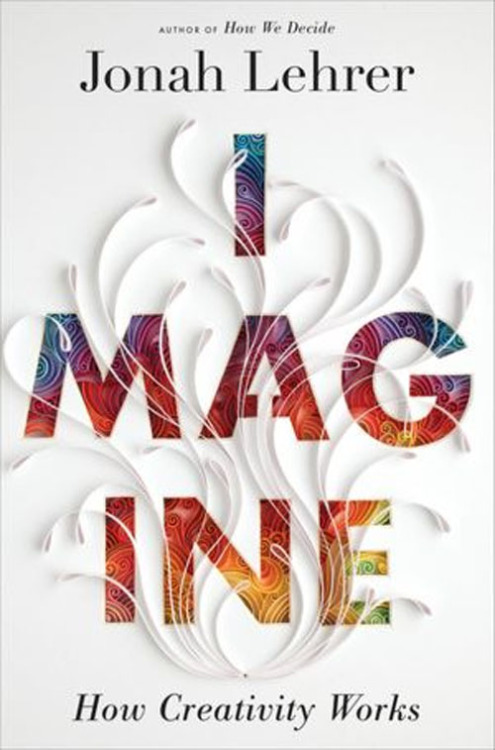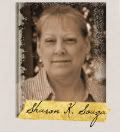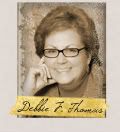On Wednesday, Bonnie said something I love:
"I'm not trying to be a smartypants, I'm hunting for something. I don't even know what it is I'm looking for, but my brain--which often operates independently of me--knows where I lack as a writer..."If you’ve read this blog for long, you know that Bonnie doesn’t have to try to be a smarty pants. And if you’re like me, you also know that “hunting for something” feeling very well. Whether you write or you don’t, you search for a way to birth the mysterious thing that’s kicking around inside you, that’s been gestating far too long.
It was the literary Braxton Hicks contractions that moved me to read Imagine: How Creativity Works by Jonah Lehrer. I’m not going to review it today except to tell you that it’s good enough to bleed yellow from all the passages I highlighted as I read.
One thing I wished for was a set of bullet points at the end of each chapter to tell me what to do, now that I was so smart about Bob Dylan and cellophane tape and the prefrontal-cortex. But there were no such points, and I’m sure the reason was that Lehrer meant to inform creatives of all sorts, and bulleted action points would differ for each reader.
No matter. I took all the highlights I'd made, and fashioned my own bullets. And today I will share them with you:
- Embrace despair.
- That terrible moment when you want to throw your computer and your vocation out the window is actually a good thing. It’s what a breakthrough feels like just before it happens.
- To welcome despair into your life, work within a form. Poets limit themselves with rhyme and meter because they know that a fenced imagination tends to expand to fill the empty spaces within those limits. If the writer doesn’t wimp out and grab the easy, almost right word because it rhymes, he will be blessed with a word that’s more than right, one that startles the reader with a flash of new light.
- Of course, a novelist doesn’t write sonnets, so her forms will be more subtle. One solution is to follow the advice of William Shakespeare, to strive to reflect “the very age and body of the time,” to use the world we live in as our “form and pressure.”
- Be bipolar.
- Remember that there are two kinds of thinking involved in writing, and each makes its own demands.
- Divergent thinking is the kind that gathers from the chaos of information around us to make new and startling associations. Much of your first draft will be written in this state of mind. (In Zen And the Art of Writing, Ray Bradbury advocates writing the whole thing in one fast, passionate, wild burst.) What it feels like is a burst of insight that seems to come from nowhere. (Imagine explains where it actually comes from.) You won’t reason yourself into a burst of insight. You have to look away, daydream, and let it sneak up on you. This means you need a time of unfocused relaxation before you write, a pleasant boredom in which you let your thoughts wander – but watch where they go. You know it’s time to daydream, to take a walk, a country drive, or a long shower, when you feel that the thing you're looking for is just inches away, but you can’t grasp it. It helps if you’re in a good mood when this kind of insight is needed. If you’re not, try watching a funny movie. Bursts of insight are happy sorts, and they hang around smiling people. (Who knew daydreaming was good?)
- Analytical thinking is different. It’s the kind of thinking that shuts out the chaos of information so it can focus in on the one thing concealed in the chaos that really matters. You know this kind of creativity is needed when you sense that you will arrive at your answer if you sit down and work it out. It's the kind of thinking needed when you edit your work. Unlike Divergent thinking, Analytical thinking prefers a slightly sad state of mind. Something about a mild depression helps you focus for longer periods of time. If you need to work something out and find that you are feeling too happy, try watching a sad movie to get in the spirit of things. (Who knew that depression was good?)
- Silence the censor.
- You already know this. The book will tell you what amazing thing happens when that particular part of the brain (your censor has a location) is damaged or stunned into silence. If brain surgery does not appeal to you, you can try these exercises in your journal, to harrass the censor into mortified silence (based on exercises used in the Second City theater and training center in Los Angeles):
- Write something silly and innapropriate. Push the limits. Write something you’ll want to burn before anyone sees it.
- Rant about something that makes you angry. Get disproportionally, over the top angry. Scream on paper. Write something you will have to burn before anyone sees it.
- Write something deeply, mortifyingly confessional, something no one knows and no one should. Tell everything. Make positively sure you burn it before anyone sees it.
- Knock yourself off center.
- Travel.
- Move to a city full of imigrants and hippies and skinheads.
- If you can’t do either of these, find a way to hang out with people who are not like you, who don’t agree with you, who know more than you, or think they do. Share ideas, and listen to the ideas of others so you can steal them and form them into something new. Be an outsider, because outsiders have to stretch. DO NOT accept unqualified positive feedback. You need constructive criticism to move your thinking in new directions. Criticism – even if it’s wrong – will open you up to fresh surprises.
This post is no substitute for the book itself. The points here only brush the surface, and the stories and studies beneath them are fascinating and mind expanding.
Does any of this speak to you especially? Please do tell. We love to read what you have to say.



























